Amarube Viaduct: Japan’s Most Famous Railway Bridge
In the far east of the Sanin region, just between the border of Hyogo and Tottori Prefecture, is the quaint town of Kasumi. While Kasumi is famous for its delicious crabs, there is another thing in this city that is equally as famous: the Amarube Viaduct. At 40m tall and 300m long, the Amarube Viaduct is the most famous train bridge in Japan. Many people, mostly train lovers, come here just to see and photograph, this famous bridge.
About the Amarube Viaduct
Amarube Viaduct was built in 1912 when JR decided to extended the Sanin Line east from Tottori. Immediately, they ran into problems. Around Amarube, the mountains stand right near the ocean, making it harder to build any new railway. It was also impossible to make a long tunnel, due to technological limitations at that time.
Ultimately, JR decided to make a bridge through the mountains. The result was the Amarube Viaduct, an impressive 40m high steel trestle bridge, the tallest trestle bridge in the country.
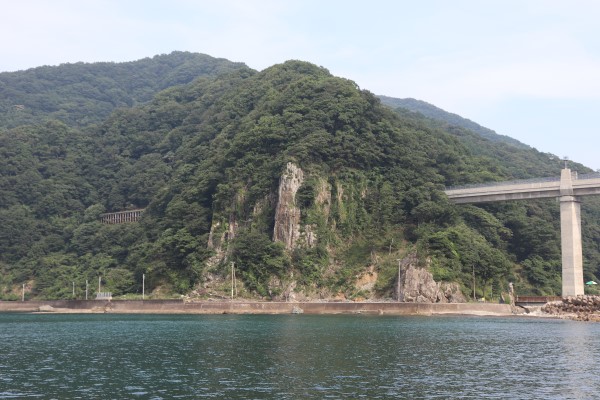
The Tragedy of 1986
As it was close to the ocean, strong winds constantly threatened the stability of the bridge. The Amarube Viaduct required frequent, costly maintenance to address issues of corrosion and fatigue. Still, the bridge was without incident.
Then in December of 1986, a strong gust of wind blow an out-of-service train clear off the bridge! Seven of the train’s passenger cars fell screaming to the ground where they crushed a fish processing plant. The accident resulted in the death of 5 women who worked at the plant, the train’s conductor, as well injuring nearby residents.
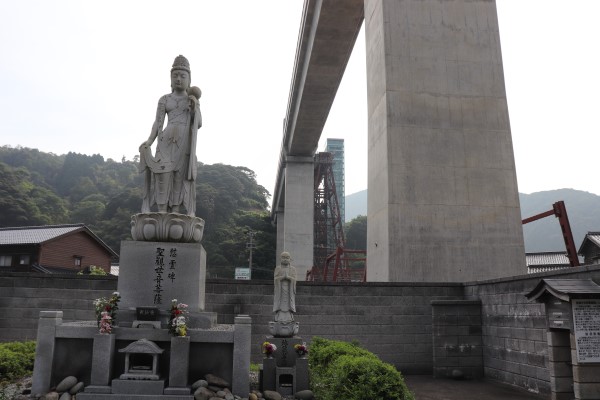
Of course, JR immediately passed stricter guidelines for when trains could use the Amarube Viaduct, specifically that train operations would cease if wind speeds exceeded 20 m/s (roughly 45 mph).
In 2010, JR finally decided to convert the steel trestle bridge into concrete, in order to improve safety during strong winds.
Amarube Viaduct
Amarube Viaduct is located right after Amarube Station off the JR Sanin Line. Pay attention to the fact that the name of the bridge name is “Amarube Viaduct” [余部橋梁], but the station is “Amarube” [餘部] (The kanji is different!).
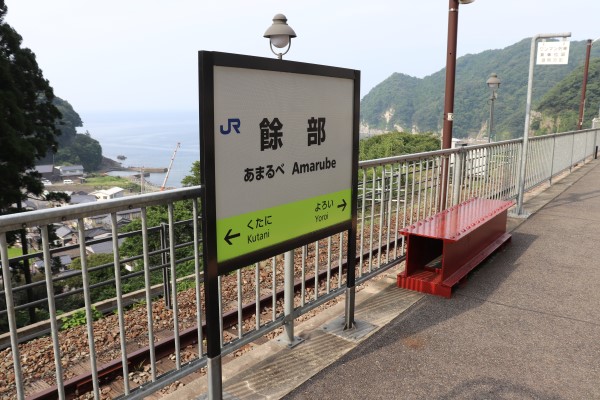
The JR Sanin Line has really sparse service: once an hour or less and the trains are quite slow…
Also, make sure to get on the train from the rear door of the front car and get off from the front door of the front car. There are no stop requested buttons on the train, so when the train makes a stop, the conductor just looks around to see if nobody wants to get off or get on the train. I guess this is the rule of countryside trains.
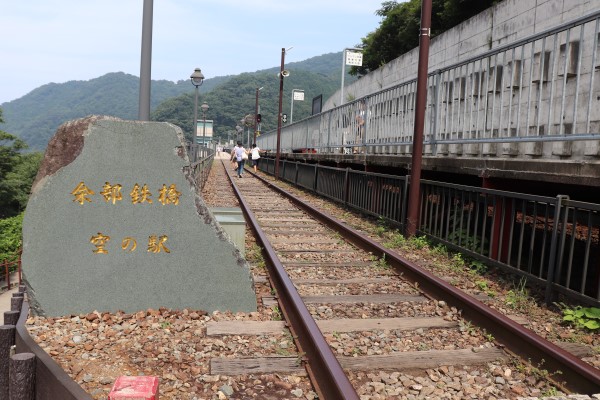
Because this station became quite popular, they made a special observation deck where you can get great photos of trains crossing the viaduct.
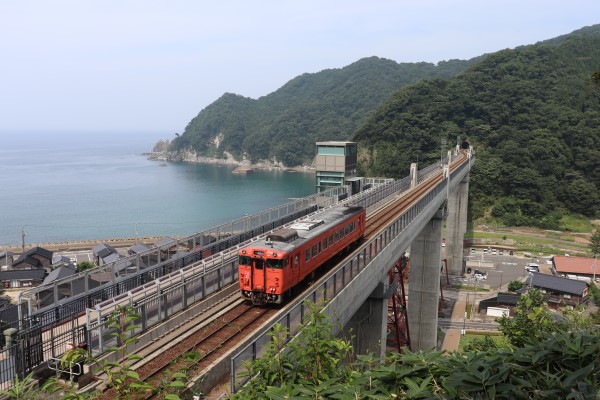
It is quite hard to access this station as only local line stops here. In fact, there are almost no limited express trains that run though here. It is ironic, but this is why most people who choose to visit this station, do so by car. Regardless of how you get to the station, it is perfectly fine to enter the station and walk around for free.
Thankfully today there is a little elevator to take you up the mountain to the station.
When you are ready to leave the station, take the elevator down to the ground level where you can see a section of the old pier of the Amarube Viaduct. After the iron viaduct was demolished, JR decided to preserve the part of it, due to its historic value.
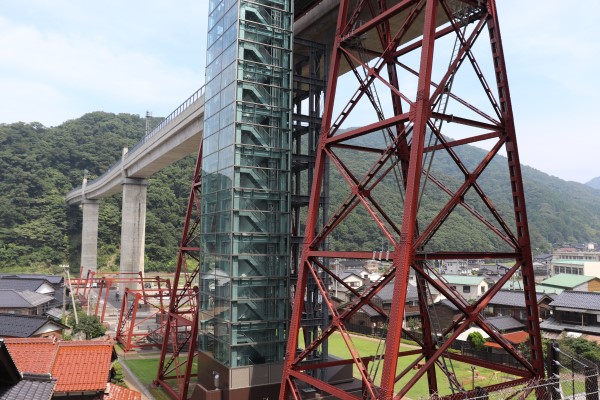
If you have to kill some time before your train comes (and you likely will), take a walk around here! If you look at the viaduct from afar, you can really see just how tall it actually is.
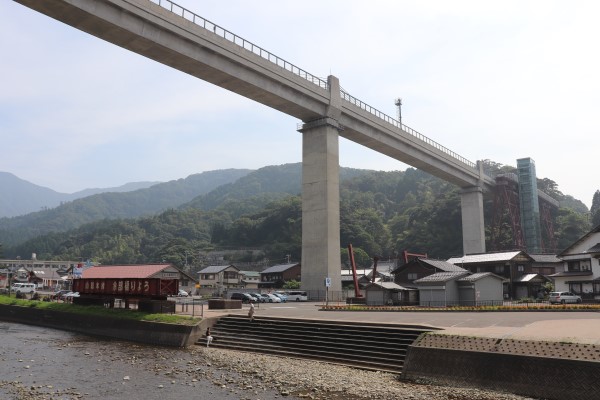
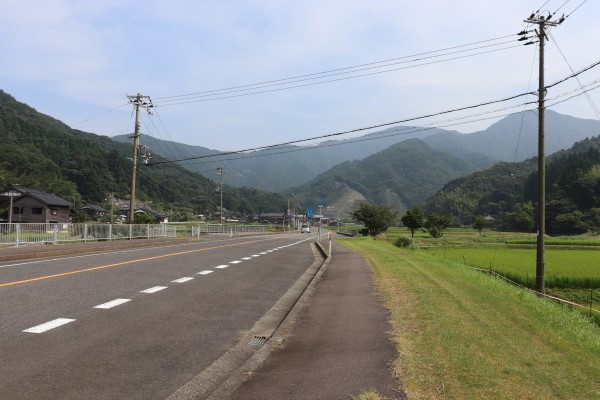
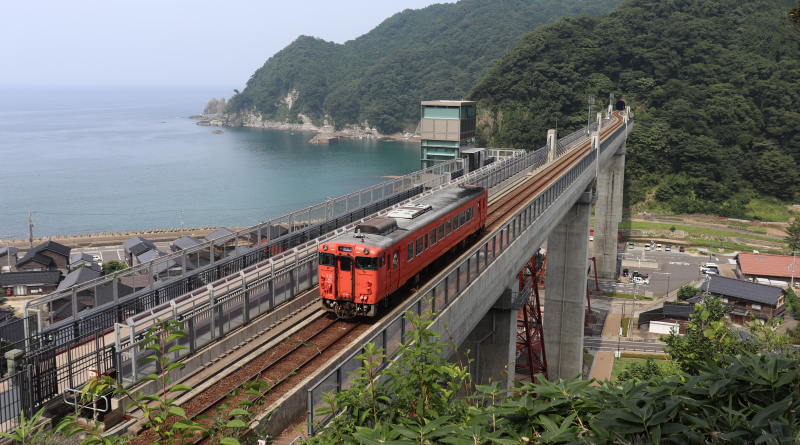
Leave a Reply